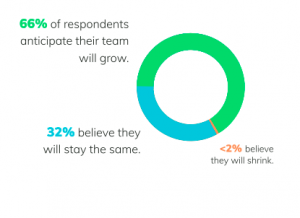Every organization has three implicit or explicit contracts: Brand, Transactional, and Psychological. Most of the intangible moments and nonverbal interactions in a company fall squarely within the oft-neglected Psychological contract. But as it turns out, it may be the most crucial.
As discussed in the book, The Employee Experience: How to Attract Talent, Retain Top Performers, and Drive Results, the Brand Contract and the Transactional Contract address employee expectations that are typically evident and open. Like the offer letter a new hire receives from her employer spelling out the benefits, job description, and the you-do-this-and-we’ll-give-you-that kind of language. However, other expectations are often obscure and remain unstated. These expectations fall under the Psychological Contract i.e. the unwritten, implicit set of expectations and obligations that define the terms of exchange in a relationship.
When talking with organizations about problems they’re facing, they often refer to problems within their company in the same way one would talk about problems with a significant other. “I feel betrayed by the company!” or “This place is really fun/stupid/boring/awesome.” Employees talk about a “lack of trust” in the company’s leadership, or nostalgically reference the “honeymoon” period. But this phenomenon doesn’t end there. We name our cars, confess love for sports teams, and manifest the same brain patterns with brand recognition as we do with religious experiences. All in all, it turns out we have a pretty hard time not anthropomorphizing inanimate objects and abstract ideas.
We are on the crest of a new age: the “Age of the Employee.” Employees are recognizing that they have more power to shape their career path than ever before, and one of the main things they are looking for is, in the most literal sense, a better relationship with their job. If your company isn’t providing it, someone else’s will. Because of this, smart companies will embrace this idea of reimagining the relationship with their employees as their secret retention advantage. And it becomes much easier once they realize that we already know exactly how to do this. The same research that shows us how to create great interpersonal relationships maps perfectly onto employee relations with their company.
Relationship Tip #1: Contempt is the great relationship killer
To preserve and foster a great relationship, we have to understand what can threaten it. What’s the number one predictor of divorce? Money usually comes to mind first, but fighting over finances is actually just a symptom of a greater problem. The number one predictor of divorce is actually the presence of contempt. Once a partner sets him or herself above the other, beginning to disregard or dismiss the other, it’s as good as over. Contempt is an extremely difficult obstacle for a relationship to surmount. For example, in an organization I recently worked with, the senior leadership had plenty of great ideas, grandiose projections, and noble values. But none of it was producing company connection because the employees, the boots on the ground, weren’t buying it. For various reasons, they had concluded that their leaders were out of touch and misguided and, as such, every attempt to prove otherwise was perceived in the worst possible way. “Oh you want to give us a raise? What a desperate attempt to curry favor.” This kind of contempt can occur when a company violates their Psychological Contract to the point that employees lose trust and no longer give their employer the benefit of the doubt.
If you want to preserve employee relationships, avoiding the contempt that results from broken contracts needs to be your number one focus. So how exactly can we avoid this death knell? The following tips each provide a piece of the puzzle.
Relationship Tip #2: Openness and vulnerability are the price of admission
In business SEO terms, we’re talking about transparency and streamlined top-down communication. But in simple relationship terms, we just want partners who aren’t hiding anything. We want trust. Business has a built-in conflict of interest. Employees work hard but often feel their efforts only benefit the CEO’s bottom line. As such, it’s important to deliberately swing the pendulum far back the other way in order to foster confidence. Be open with mistakes. Acknowledge doubt. Be quick to take painful accountability. Take employees on the ride with you, even when you’re not sure exactly where to go. Trust me, they want to be a bigger part of the company, and when they feel they are, trust and commitment follow. Think of the last friend you had, or someone you dated, that always kept you in the dark about what they were doing or thinking. Someone who kept things “high-level” and only presented a positive façade. How invested were you in that relationship? Not very? So why do we do this to our employees?
Relationship Tip #3: Recognizing bids
Another way to improve our transparency and vulnerability is to be aware of how often we make and accept bids. A bid is a small gesture designed to elicit attention or trust. Imagine a scenario where an employee approaches you, her boss, with an idea or suggestion that is objectively terrible. You gently explain why it probably won’t work and walk away patting yourself on the back for not openly scoffing or getting mad at her for wasting your time. Let’s be honest, you’re the hero here! But it’s not, and never was, just about the content of the idea. She was asking to connect, to have her contributions recognized, and to feel part of the larger discussion. She made a bid for attention and you, though inadvertently, rejected that bid right along with the bad idea. One of the most frequently low-scoring items on our employee engagement surveys is, “This company responds well to suggestions and ideas for change.” That’s a lot of unanswered bids and a lot of missed opportunities to nurture trust.
Relationship Tip #4: Navigating between equal and equitable
Historically, the employer/employee relationship has been one of hierarchy and imbalanced power. Structurally, it makes sense. An organization needs both leaders who set a direction and followers to help move things forward. Unfortunately, because of how people naturally gravitate, hierarchy becomes perceived as a value judgment, a statement of relative worth. People farther up the ladder must be more important and therefore better. When this value judgment trickles into company culture, employees end up doing things because they are told to, rather than because they see the value in their contribution. There is a word for the kind of relationships where one partner is considered inferior and always does what they’re told. And it’s not “healthy” or “stable.”
The key to overcoming this negative perception is to embrace the shift toward employees desiring a place at the table. Just getting a paycheck isn’t enough anymore. They want great pay AND meaningful work. Employees need to be valued equally, even while their roles remain equitable. That is to say, everyone contributes in a unique way but all roles are equally valued and respected. A mechanic doesn’t demand to switch places with the pilot. But both are equally important in ensuring a smooth flight, and the pilot knows better than to disregard the person that keeps the plane in the air. So we need to refrain from speaking in terms of totem poles. For example, don’t ever say something like “even the lowest-level employee.” You may not mean it the way it sounds, but you can understand why someone could hear it that way. And if you ever find yourself dismissing, condescending, or raising your voice at an employee, consider that if that’s not how you would treat a friend, then it’s an abuse of your positional authority and a violation of trust.
Relationship Tip #5: Loyalty
Loyalty begets loyalty. If we want employees to be loyal to us, showing loyalty to them is critical. My first job was at a fried chicken franchise. I’d seen managers come and go, and most were fairly authoritarian. No matter how many times a counter had already been wiped down, I was expected to put on a show of being busy so as not to displease my manager. After transferring stores, one of my first experiences at the new location was watching a colleague make a mistake and then get berated by a customer. The customer screamed and ranted and demanded to see the manager, Kevin. When Kevin came out, this customer unleashed a tirade that would make a drill sergeant blush. Not being my first rodeo, I was prepared for the negativity to roll downhill to the rest of us. But instead of validating the customer and raging against us, Kevin immediately grabbed the customer by the shirt front, pulled him over the counter, and uh, sternly informed him to NEVER talk about his employees that way NO MATTER WHAT they had done.
As of this writing, I haven’t seen Kevin in 20 years. But to this day, if he ever reached out, I would drop everything to help him. And you better believe that after that he had the cleanest countertops in the business without ever having to ask. What’s more, it was my genuine pleasure to do so. That is the power of loyalty.
And that is the power of having a trusting, meaningful relationship. You can’t buy it and you can’t incentivize it; you can only earn it. Simply showing up never worked for any relationship and it won’t work in business either. So, what effort will you put in to earn a great relationship with your employees?
Business & Finance Articles on Business 2 Community(73)
Report Post




